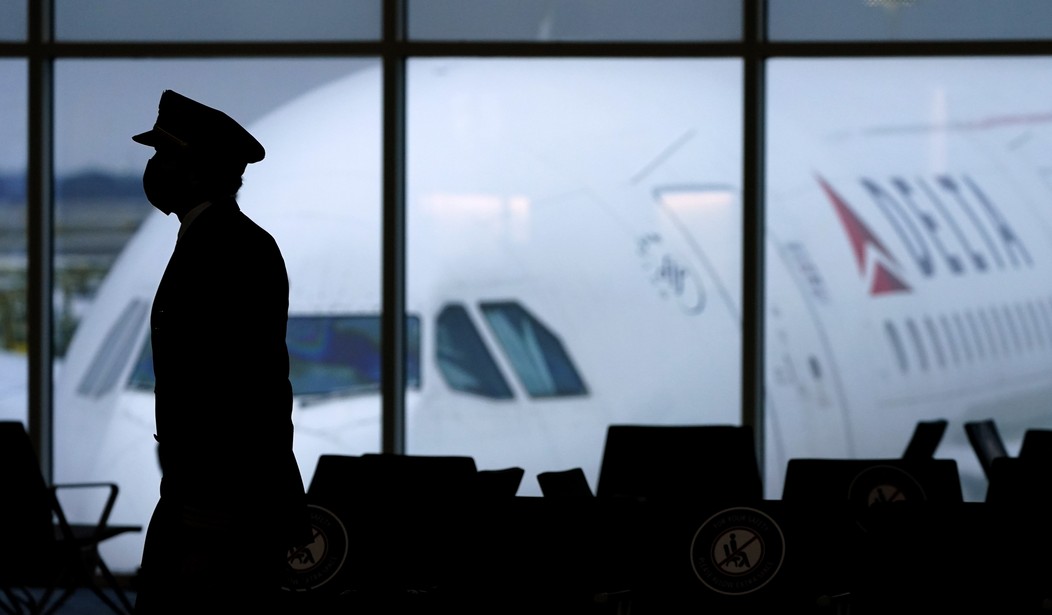The Biden administration announced new travel requirements for international visitors on Monday. The new rules replace those put in place in January 2020 as protection from the spread of the coronavirus pandemic. The new rules will require most travelers to America to be vaccinated against COVID-19.
There are some exceptions to the new requirements. Children under the age of 18 and people from countries experiencing a shortage of COVID-19 vaccines will be exempt from providing proof of vaccination. Beginning November 8, foreign travelers described as non-immigrant adults traveling to the U.S. will have to be fully vaccinated. All travelers will have to be tested before boarding a plane to the U.S. Tightened restrictions for American and foreign citizens not fully vaccinated will be in place.
Under the policy, those who are vaccinated will need to show proof of a negative COVID-19 test within three days of travel, while the unvaccinated must present a test taken within one day of travel.
Children under 18 will not be required to be fully vaccinated because of delays in making them eligible for vaccines in many places. They will still need to take a COVID-19 test unless they are 2 or younger.
Others who will be exempt from the vaccination requirement include people who participated in COVID-19 clinical trials, who had severe allergic reactions to the vaccines, or are from a country where shots are not widely available.
That latter category will cover people from countries with vaccination rates below 10% of adults. They may be admitted to the U.S. with a government letter authorizing travel for a compelling reason and not just for tourism, a senior administration official said. The official estimated that there are about 50 such countries.
The U.S. will accept any FDA-approved vaccine for regular or emergency use or approved by the World Health Organization. These include Pfizer, Moderna, Johnson & Johnson, AstraZeneca and China’s Sinopharm and Sinovac vaccines. Mixing and matching of approved shots will be permitted.
The airlines are stuck with enforcing the new requirements. They will be required to verify vaccine records and match them against identity information. Here’s a new twist – how do quarantine officers sound?
Quarantine officers from the Centers for Disease Control and Prevention will spot-check passengers who arrive in the U.S. for compliance, according to an administration official. Airlines that don’t enforce the requirements could be subject to penalties of up to nearly $35,000 per violation.
It sounds as though the quarantine officers are not there to help the airlines with their additional responsibility to enforce compliance with the requirements but to catch any travelers who might fall through the cracks and fine the airlines. Extra government revenue, right? That’s the thing with strident government control over industries, their grip only increases, it rarely loosens back up. In this case, more travel will be allowed but at the cost of airline personnel who are under Big Brother’s thumb to enforce it. The mental picture of CDC officers lurking around is enough to make a person cringe. Not only will travelers be required to show their papers initially to board the plane, some will also have to do it again for a quarantine officer.
The CDC is also requiring airlines to collect contact information for all international air travelers, regardless of vaccination status to allow them to facilitate contact tracing if necessary.
The Biden administration’s goal all along has been to pile on as many inconveniences as possible for the unvaccinated among us in order to drive Americans to get vaccinated. They are creating a two-tier society using vaccination status as the baseline. They will continue to make it as uncomfortable as possible for the unvaccinated until their goal is met. We see it in the United States now with some venues requiring proof of vaccination to enter. No vaccine? No concert ticket.
The Trump administration began with travel restrictions with China in January 2020 when it became apparent that the coronavirus originated there. Then the administration expanded travel restrictions to include Brazil, Iran, the U.K., Ireland, and most European countries. Biden left all that in place and added South Africa and India to the list. Biden has been under pressure from European allies to drop the restrictions as many of them have eased restrictions on American visitors. “The United States is open for business with all the promise and potential America has to offer,” Commerce Secretary Gina Raimondo said after Monday’s announcement. The airline industry is pleased, hoping for an increase in ticket sales and bringing business back to pre-pandemic levels. One travel industry analyst urges caution in optimism, though.
“We have seen an increase in ticket sales for international travel over the past weeks, and are eager to begin safely reuniting the countless families, friends and colleagues who have not seen each other in nearly two years, if not longer,” Airlines for America said in a statement.
The pandemic and resulting travel restrictions have caused international travel to plunge. U.S. and foreign airlines plan to operate about 14,000 flights across the Atlantic this month, just over half the 29,000 flights they operated during October 2019, according to data from aviation-research firm Cirium.
Henry Harteveldt, a travel industry analyst in San Francisco, said the lifting of country-specific restrictions will help, but it will be tempered by the vaccination and testing requirements.
“Anyone hoping for an explosion of international inbound visitors will be disappointed,” he said. “Nov. 8 will be the start of the international travel recovery in the U.S., but I don’t believe we see full recovery until 2023 at the earliest.”
So far, the Biden administration has not required vaccination for domestic travel. The airlines strongly oppose that as it would be impractical because of the large number of domestic travelers in the U.S. every day.








Join the conversation as a VIP Member